Murder at the Galliano Club, the first novel in the Galliano Club historical fiction thriller series won the Silver Falchion Award for Best Historical at the 2023 Killer Nashville International Writer’s Conference.
I’m still shell-shocked.
The Galliano Club series wasn’t supposed to be a major project. Just something to keep my mother Jean entertained as we endured lockdowns in 2019 and 2020.
My mother had just moved into a lovely, assisted living facility in upstate New York about 90 minutes from my three siblings. Suddenly she was confined to her apartment, no longer enjoying three-course meals in the beautiful dining room with chandeliers and cloth napkins. Gone were the group activities. No more outdoor walks, movie nights, duplicate bridge, or spirited political discussions in the library.
An extrovert, my mother has always had a morbid fear of being alone. Far too many times after my stepfather passed, she ended up in the emergency room in the throes of a panic attack. The decision to move out of her own home and to the assisted living facility was driven in good measure by that fear.
For a time, it was a good decision.
Lockdown
As New York state locked itself into panic mode, she spent hours by herself, agitated and crying. Days went by when she saw no one besides a harried staffer in a mask delivering a box of food.
As my mother’s world shrank, so did her cognitive abilities. She forgot how to operate the television remote control, often confusing it with her cell phone. She re-read the same book over and over. She mixed up her medication.
“There’s something wrong with my brain,” she’d cry angrily.
When my siblings visited, they stood below her window for a shouted conversation. But I live in Tennessee, hardly within shouting distance. The miles between us stretched into an unknown infinity of time.
Pandemic project
During the pandemic, I couldn’t face writing another book in the Detective Emilia Cruz mystery series full of cartels and corruption. I needed something easier. More hopeful and comforting.
Family and hometown provided the answer.
I’d write historical fiction inspired by my hometown of Rome in upstate New York and the stories my grandfather told of the days when he was a deputy sheriff of Oneida County during Prohibition. To give my mother something to think about besides her lonesomeness, she could give me authentic details.
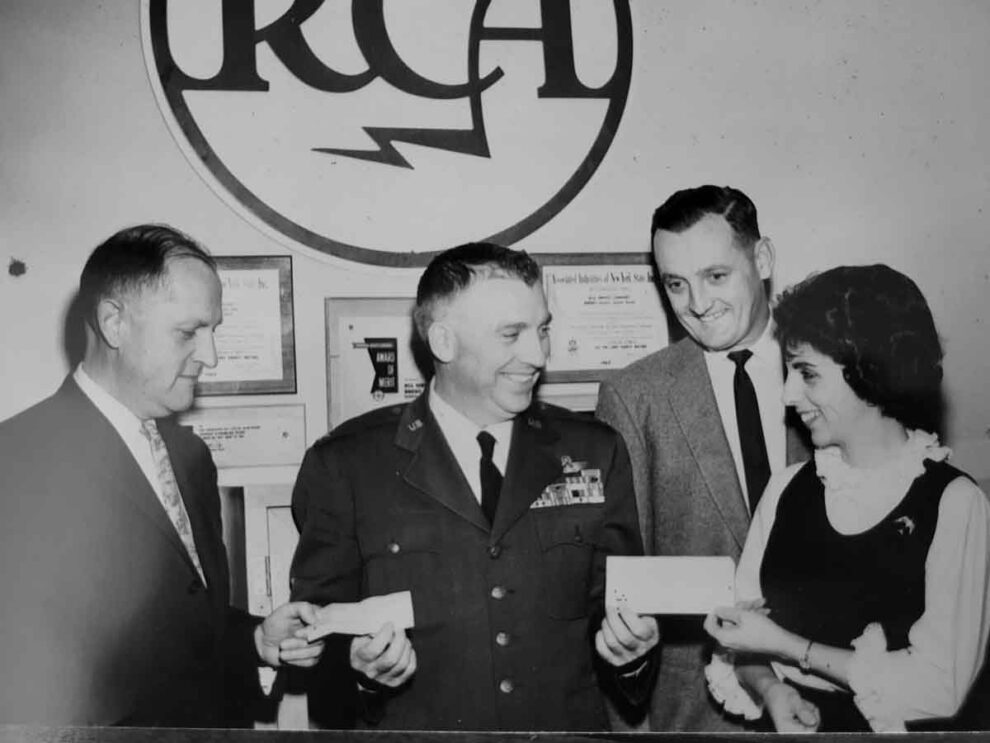
My mother Jean, circa 1965, when she was working for RCA at Griffiss Air Force Base in Rome NY.
And so every evening as she sat alone in her apartment, we had long telephone calls about her childhood. The Italian community in East Rome revolved around Saint John’s Catholic Church, the convent, and festivals. Men worked at the Revere Copper and Brass Rolling Mill, Rome Cable, and other large manufacturers. There was a handball court behind the house when she was growing up.
Her grandfather moonlighted as the bartender at the Liberty Club, his faithful black dog at his feet. Rival to the real Galliano Club across the street which had a dance studio above it, the men-only social club was an impressive sight at parades when members formed a phalanx of tricolor sashes and banners.
I asked her what the men did at the club every evening. “Drink,” she said with a sniff of derision. “And play cards.”
Making Lido
As weeks turned into months and the evening ritual went on, my mother provided the details that would build the fictional city of Lido in the Galliano Club books. Details such as Nelson’s department store where ladies’ silk stockings were sold in flat boxes. The cleanliness of Red’s Meat Market. Madonia’s fruit stand smelling like citrus and bananas. Civic band concerts. Bocce tournaments. Pastries, habits, shops, friends.
“You should put this in,” she’d say, then proceed to tell me about her grandfather butchering a pig and making blood sausage.
Eventually the pandemic lockdowns lifted but the damage was done. My mother, now 94, suffers from dementia that has robbed her of the ability to do everyday things like read, turn on her television, or remember to brush her teeth. She lives in the memory care wing of a different assisted living facility. Given that she no longer answers her telephone or will call me, we rarely speak.
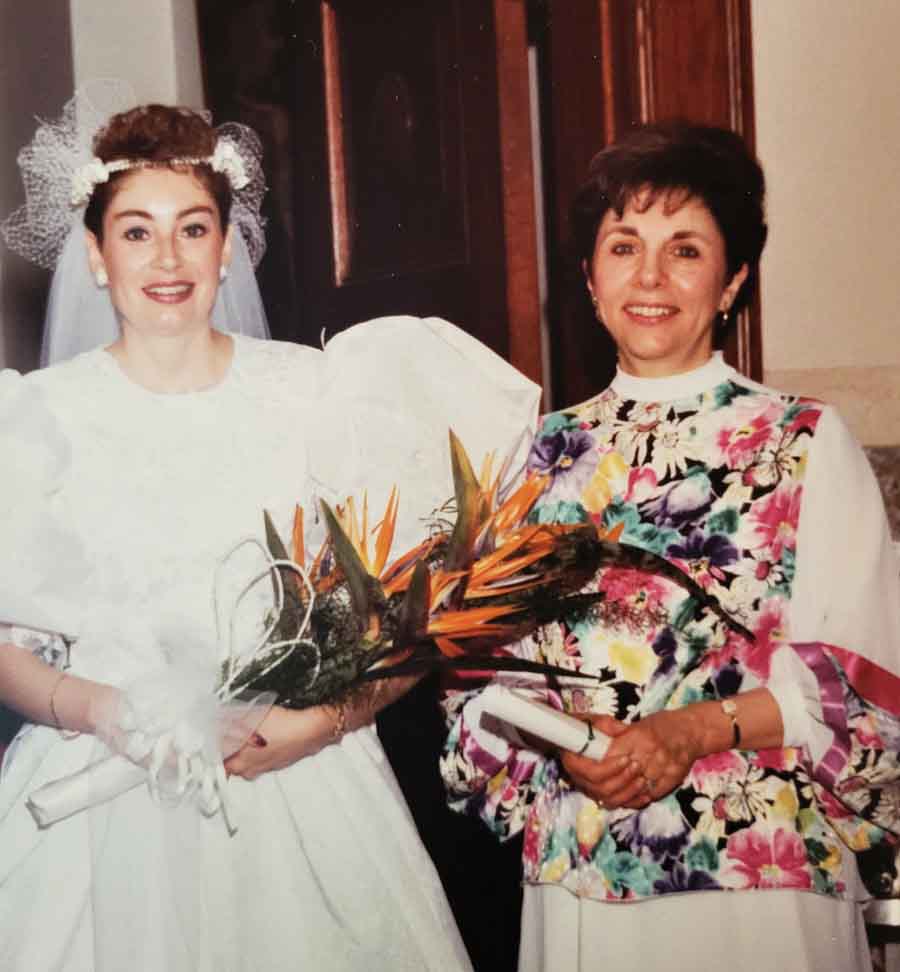
My mother Jean and I on my wedding day in 1989. Poofy sleeves were in. Don’t judge. Also my bouquet looks like it is trying to eat her.
She doesn’t know that all 4 of the Galliano Club books have been published, each a gripping thriller novel in its own right. She doesn’t know that publishing distributor Ingram liked the cover of Revenge at the Galliano Club so much that the book topped a display in the company’s lobby. She doesn’t know that author, poet and educator Michael Hogan compared the writing to that of E.L. Doctorow.
She doesn’t know that Murder at the Galliano Club won a prestigious literary award.
Yet the award belongs as much to her as it does to me.

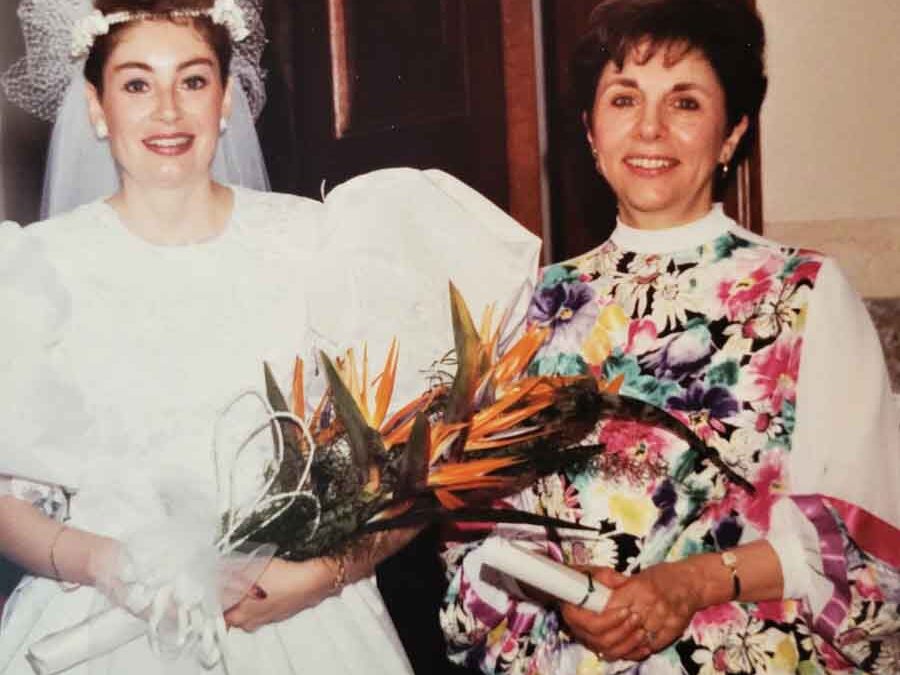
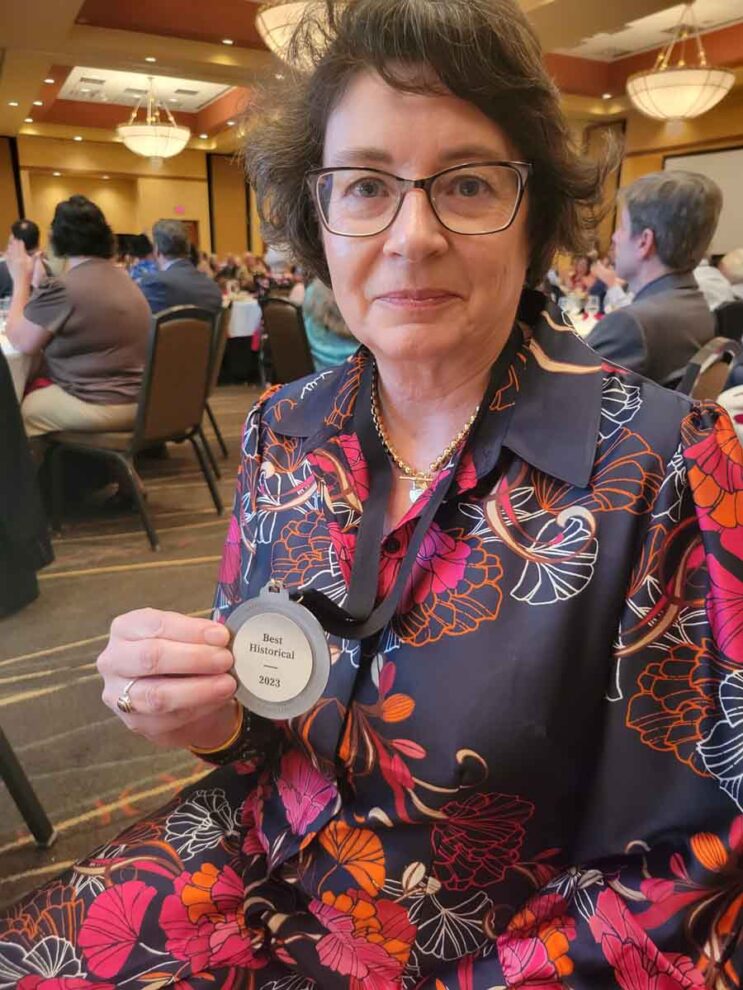
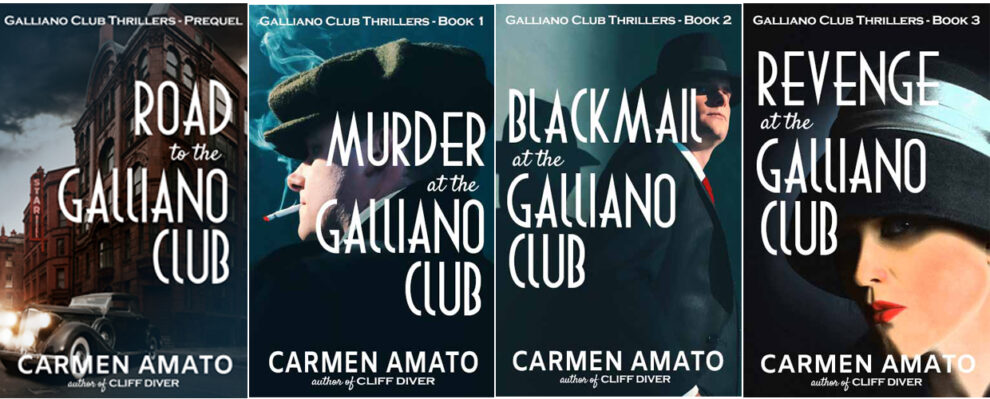
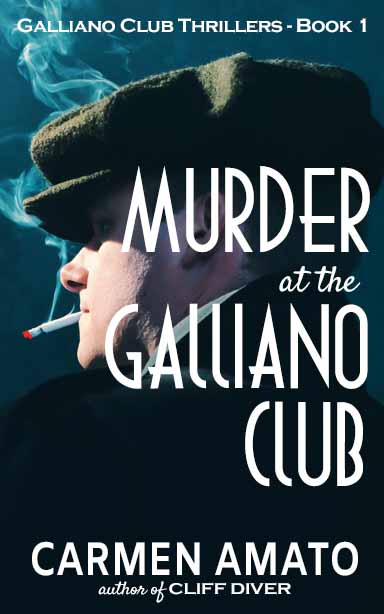

So interesting to learn how The Galliano Club mysteries came about, Carmen. What a dear thing to do, and very inventive, to keep in touch w/ your mother as she experienced memory loss. It’s touching and sweet. And btw I loved the series!
Thank you, Jeanine, your words mean a lot.
My eyes filled with tears as I read. This was too familiar to me. I saw it happen with my father and my aunt, and now my uncle is there too. What is wonderful is that your stories and your mother are forever intertwined.
Karen, this is happening to so many people. I can’t help wondering if Covid had that impact or something else is happening. Hugs to you and yours.
Karen, I love the way your words expressed so well what I’d hoped to do! Thank you so much.
Carmen, I send both my congratulations and my condolences. I’m currently dealing with a parent who suffered from the isolation of the pandemic and lost cognitive faculties because of it. Kudos to you for using that time to give her a reason to talk and for creating a testament to her memories.
Deb, thanks for the comment. I am with you in spirit. The pandemic changed so many people, didn’t it?
Thank you for sharing an intense personal process. The history in the story arc is so meaningful. My mother had a similar decline for seven years, and my heart aches for you.
Kay, what doesn’t break us makes us stronger, right? I hope that’s true for both of us 🙂